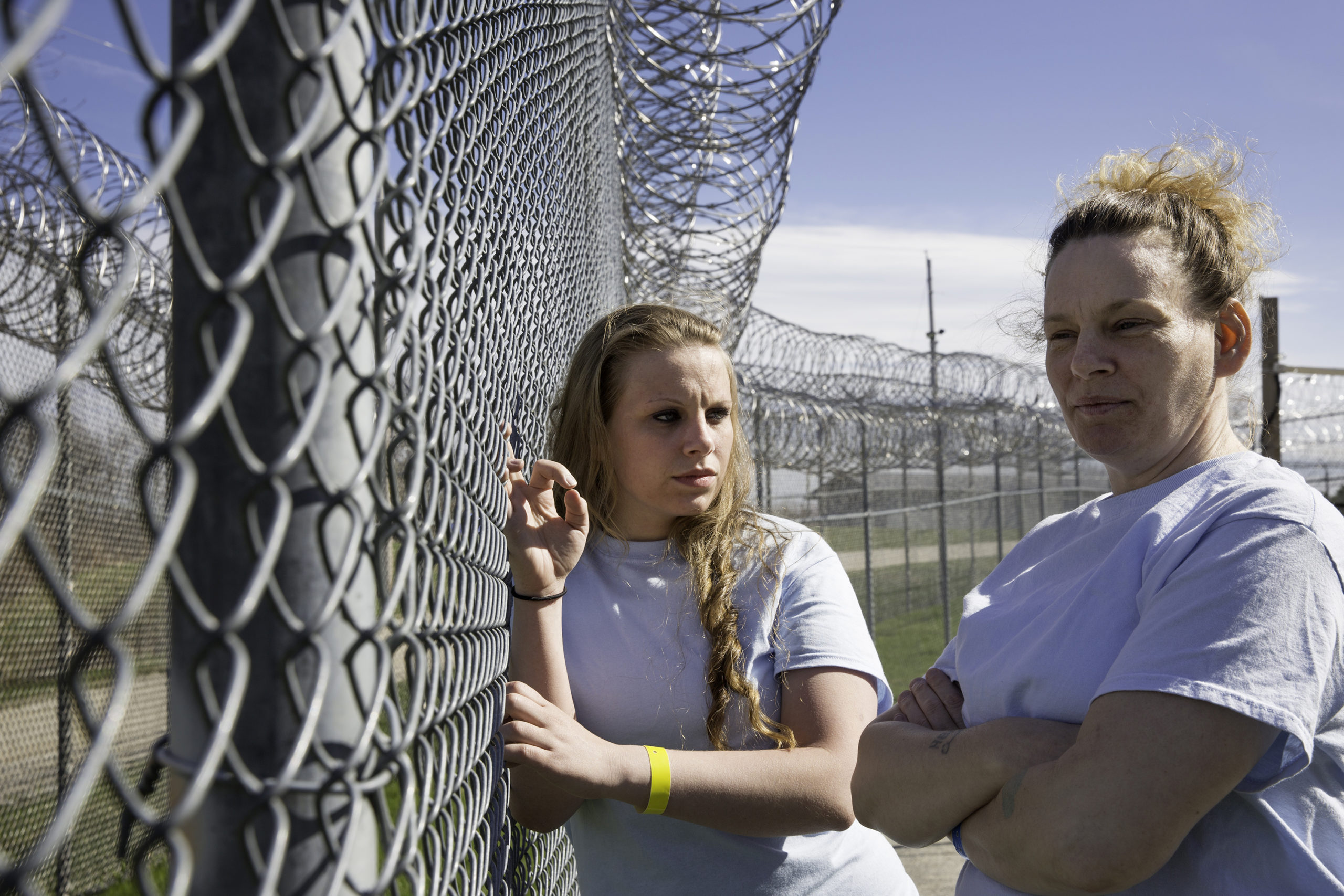‘Jacinta’: Tribeca Film Review
By Jessica Kiang
LOS ANGELES (Variety.com) – At the beginning of the documentary that bears her name, 26-year-old Jacinta, daughter of Rosemary (45), mother of Caylynn (10), has been incarcerated in Maine Correctional Center, where her mother is also doing time, for eight months, with one to go. Even if she did not later ruefully admit — in one of those asides that sometimes see her eyes flicker off-camera, acknowledging the steady, unseen presence of director Jessica Earnshaw — that she hoped her release would be the opening act of a success story, it’s hard to dispel the significance of that stretch of time. Nine months is a pregnancy, and Jacinta, defined more than most by motherhood and daughterhood, wants to be reborn.
Earnshaw’s remarkably engrossing debut, which won the Albert Maysles New Documentary Director Award from the coronavirus-shuttered Tribeca Film Festival where it was set to premiere, was three years in the making. It bears the hallmarks of her background as a photographer in its unobtrusively rich images, but despite Jacinta’s desires and the director’s own hopes, it is not a success story.
Instead, it’s something truer, stranger and more complicated, a broad sociological study containing a Greek tragedy’s worth of inherited sins and fatal flaws, yet also a compassionate portrait of an individual who becomes increasingly differentiated from the archetype of any of her given roles. At times it feels like even Earnshaw herself cannot quite negotiate this tension, between the general and the specific, between her film’s sweeping statements about class, addiction and inherited trauma, and the anomalies, contradictions and unique quirks of personality its subject embodies.
The youngest of three children, the first of whom Rosemary conceived at 14, Jacinta claims her maternal family is notorious around town for “chaos and crime.” Described tearfully by her incarcerated older brother Todd as “so innocent” and pictured in old home movies as a sunny blonde child with an incandescent, baby-toothed smile almost wider than her face, she lived with her doting father Rick following her parents’ split. But as soon as she was legally able, she rejoined her mother, Rosemary, who introduced her to drugs, shoplifting and brawling.
“I wanted to be like her,” says Jacinta, introducing this bafflingly, unhealthily co-dependent relationship. “Not that I wanted to pick up her mistakes but if that’s what it took, I was willing to do it.” In and out of prison ever since, she had her own daughter, Caylynn, when she was 16. When she’s inside, she writes Caylynn letters of devotion that she doesn’t send, and covertly calls out “I love you!” to her mother’s window, although such communication between inmates is forbidden.
Jacinta is a surprise: bright, lively and personable, and often cuttingly insightful about her own self-sabotaging tendencies, even as she battles them. There’s a brief honeymoon period after her release when she stays clean, lives in a sober house and has a joyous reunion with pretty, watchful, precocious Caylynn, who lives with her paternal grandparents in a big suburban house in New Hampshire. They hug and play intensely, Jacinta desperately pouring love into her daughter like it’s water and they’re facing miles of desert before the next oasis. Indeed the affection shared by all the family, and the way they maneuver, helplessly but with endless patience, around Jacinta’s issues is deeply touching.
But Jacinta starts using again — heroin, which she calls “the best friend who doesn’t talk back.” Her slide back into addiction and criminality is mapped unsentimentally but not brutally, although there ought to be a trigger warning for injection scenes that come frequently and with shocking casualness. Jacinta steals blithely from a shopping mall and shoots up in the car after — behavior so normal for her that you can see how she can refer to it as a “lifestyle,” as though her destructive dysfunctionality were a choice.
Even so, Earnshaw’s presentation of “Jacinta” is selective. Despite ever more sordid revelations about her past and the unstinting depiction of the agonies of detox, the closest we get to rock bottom is when, made clumsy in her stupor, she passes out against her makeup mirror (Earnshaw likes to repeat the motif of Jacinta, and later Rosemary, applying mascara). It’s not squeamishness, but there is a degree of diplomacy in what is shown and what George O’Donnell’s deft edits conceal, especially with respect to Rosemary and the inexplicable bond between her and Jacinta. “I am my mom’s ride or die,” Jacinta asserts, but what kind of mother would offer only those options to her daughter?
But it comes into its real, peculiar power as a portrait of a young woman trying to be a better mother than the mother she worships, and to break inexorable generational cycles even while she herself is still trapped in their coils.

